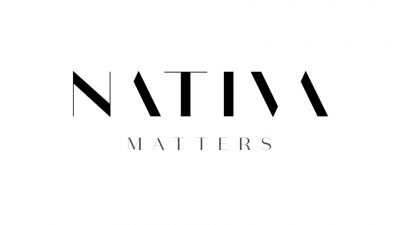A new book sets out a system to improve attention to detail and so achieve success in business
At the heart of any entrepreneur’s success, good leadership and performance in business lies one key ingredient – attention to detail.
In fact, this, coupled with striving for excellence is critical to any form of achievement.
Even in the general workplace, those who are focused and work with precision likely climb the ladder faster whilst producing high-quality work.
But what if there’s room for improvement?
Or a system that we could follow that encourages excellence and offers an uninterrupted journey to those keen to develop it?
Improve Attention to Detail is a ‘how-to’ book that lays out a system to improve attention to detail in individuals and organizations.
The system has been devised by the US business owner and consultant, Chris Denny.
He writes that his system can be applied to issues or challenges, in order to reduce or eliminate mistakes, increase task accuracy, or improve the quality of a service or an experience.
What’s more, because of its conversational, easy-to-read style and simple layout, Improve Attention to Detail suits anyone in the workplace from the frontline to the C-suite.

Chris Denny is a researcher, trainer, consultant, business owner and the author of Improve Attention to Detail
Here Houston-based Chris tells Nativa World what’s behind his debut book and includes tips so we too can set foot on our own pathway to excellence.
Chris, how did you come to write Improve Attention to Detail?
I had an employee who was highly talented, technically-speaking. He produced great work, but only after you went through three or four iterations to correct the mistakes. His attention to detail was unbearably low but he was a good guy and, again, very talented. After searching to find something to help him be more detail-oriented, I came up empty-handed. Like a young and optimistic manager and entrepreneur, I decided to put something together. I quickly found that tackling the concept in a thorough way is much bigger than I anticipated. I also enjoyed the research I was doing since it covered topics from psychology to organizational theory to human resources to engineering, operations, supply chain, errors, root cause analysis, and on and on.
Six years later, I had stacks of research, hundreds of surveys, interviews, whiteboards covered with ideas and drawings. In the end, I had a system to improve attention to detail in individuals and organizations.
I was also posting some of the concepts I was putting together on my website and after several companies asked me to give a workshop, I started doing those. Then, people asked me if I had written a book. This was the next step.
What’s the message?
‘You can improve attention to detail, and this is how you do it‘. People get somewhat intimidated by the concept as if they’re expected to achieve perfection. Being detail-oriented is NOT about being a perfectionist. To me, that word stifles creativity and hinders performance. “Perfect” is an unachievable concept, implying there’s nothing better. Being detail-oriented is about constant improvement; about improving a little every day. It’s about developing excellence, which is something you can affect and improve upon.
How can female entrepreneurs benefit from reading your book?
They can use the book in the same way any individual employee or leader can use it – to improve and automate attention to detail in herself and/or her team(s) and organization.
For entrepreneurs, I think the keyword is “automate.” Entrepreneurs, especially new ones, should be partly focused on identifying opportunities to create and automate systems and processes that increase the efficiency of work performed as well as the consistency of results. The book provides guidance for these initiatives along with suggestions for how to get employees more engaged in their work so they will make fewer mistakes and be more accurate overall.
Do you think people are less ‘detail-orientated’ these days?
Maybe so, or maybe there are simply more and bigger challenges now. Every generation has new challenges and technology to deal with. There are now more distractions than ever before with the increased pressure and demands to do more at work, for kids to be in two sports while learning an instrument, to be more available to work and spouses, to be more self-aware, and so on. There is a body of research (or theory, at least) that suggests multi-tasking wasn’t an actual problem before technology and that makes some sense. There was a time when being on the phone while typing an email wasn’t an issue because one or neither existed. I don’t know that people are less organized or less detail-oriented, but these days, we certainly have exponentially more distractions and more demands on our time and attention.
What’s the Attention To Detail Training system?
It’s designed to develop in individuals and teams a complete and well-rounded understanding of the concept of attention to detail. With that initial foundation in place, we then go through a program of elements, tools, and exercises they can use to become more detail-oriented over time and discuss a system – primarily the five fundamental elements that they can apply to specific tasks, challenges, or opportunities to increase and/or automate attention to detail. Most commonly, the primary goals are to reduce mistakes, increase accuracy, and/or improve the quality of services or products.
In workshops and online courses (and in the book) we discuss the three types of attention to detail, attention from a cognitive point-of-view, the five fundamentals of attention to detail, developing attention to detail in teams, and the details of each of those.
Chris’ tips to be more detail-orientated:
If someone truly wants to become more detail-oriented, then small lifestyle adjustments are the best way to succeed. It’s like finding the best diet for yourself. You can go all in and burn out quickly, probably calling it a failure, or you can choose several parts of the system that you enjoy and can stick with consistently.
- Be certain that the purpose of the task at hand is clearly understood. Everyone should know the “why.” It builds sincere interest in getting it right and helps with little decisions.
- Question if knowledge is an issue. Is lack of training or experience causing errors or lagging performance? Employees are often afraid to ask for training for fear of seeming incompetent and managers don’t always think to address it. There’s a huge disconnect between employees and management where training is concerned.
- Can you apply a system to minimize, eliminate, or automate the issue? Look for ways to move the need for thinking onto paper or into software. “Systems” can be anything from repetition to checklists to software to manuals and design solutions.
- Have a “last touch delivery” attitude. Almost every task must be turned over to someone else on some level and work should be as complete and correct as it needs to be for the next person’s purpose. It is a matter of respect as well as quality. They should not have to re-do your work or return it for corrections (especially your customers). Training, experience, and systems support this heavily.
- Look for what I call “moments of opportunity”. Learn to become aware of moments when a mistake could happen if action isn’t taken to prevent it. It’s largely about being present and mindful instead of reactive. For example, You’re writing a complex and important email to a group of clients and someone stops by your office to ask a question just when the right words have come to you.
- Recognize the moment as one when the best action may be to say, “Please give me 10 minutes and I’ll come and find you.” instead of allowing the interruption. After all, it’s in everyone’s best interest that you’re as effective as possible.
Chris’ tips to improve focus at work:
Focus is the first of the five fundamental elements and it has components you can change immediately and others you need to practice over time. I suggest a mix of both immediate improvements and long-term optimization.
- Exercise regularly. Healthy body, healthy mind. Research shows that exercise, especially strength training, improves the brain’s cognitive functions.
- Meditate. Practicing meditation is, in my opinion, the most effective way to increase overall focus (research supports this). In fact, meditation is essentially the practice of ignoring distractions. Five minutes is world-changing. I describe my simple routines in the book.
- Control or eliminate noise distractions. You might wear headphones with focus music (I love the Calm app) or you might just need a desk further away from the water cooler and the noisy conversations that happen around it.
- Take non-electronic breaks every hour or two. Five minutes is enough. Even better, take a walk or exercise a little. It gets the blood pumping, clears the mind, and gets the creativity flowing.
- Turn off notifications (on your desk and computer), use your voicemail, and put your phone away. All the screens, the “rectangles” as my best friend likes to call them, and the noises and flashes they make interrupt our focus hundreds of times each day and we’ve become obedient to their whims.
What’s next for you Chris?
In 2020, I’ll be focused on delivering more workshops and expanding online course offerings. I’m also offering 1:1 coaching (very limited) and organizational consulting to develop attention to detail within teams. I truly enjoy researching and working in this topic and helping people and teams develop practices, systems, and programs to be more accurate and productive.

Improve Attention to Detail – by Chris Denny
Photography courtesy of Chris Denny























Comments